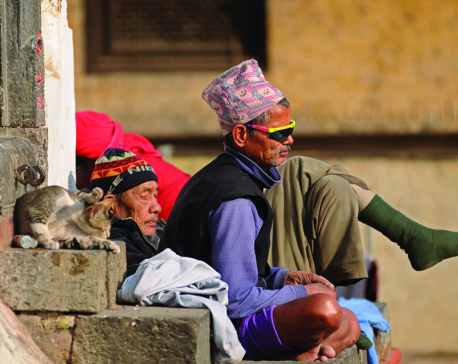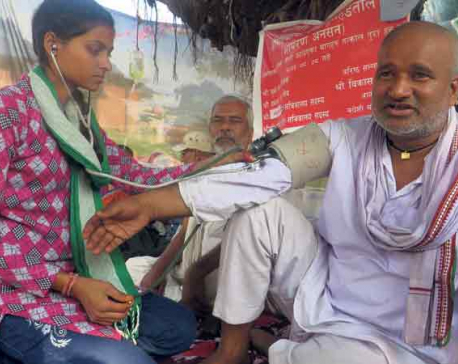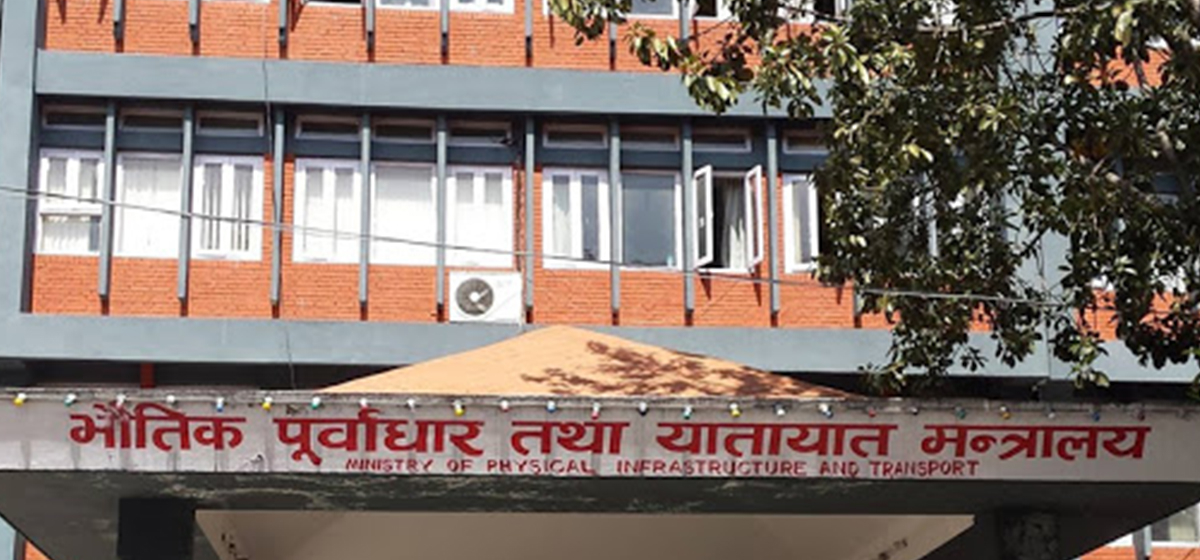
OR


Ganesh Mandal
The author is a Nepali Congress representative in the Legislature-Parliament, elected from Siraha-6mandalg34@yahoo.com
More from Author
Even though Nepal’s new constittuion has several weaknesses, its flexible, amendable and democratic characters are its big strengths
With the promulgation of the new constitution on September 20, 2015, the seven-decade-long dream of Nepali people to have a constitution through the Constituent Assembly has materialized. The new constitution is the seventh constitution of Nepal since 1948. Though it was a big challenge, Nepal was eventually successful in drafting and promulgating the new constitution, even after the failure of the first Constituent Assembly.
In the post-constitution phase, Nepali politics currently is once again stuck in the marsh of indecision. Currently, there are three major challenges before the country: conducting local election successfully, addressing dissatisfactions through amendment of the constitution and thereby making it more widely accepted, and effectively implementing the constitution.
Election of local bodies is inevitable, as it has been almost two decades since the last local election, which has badly affected the country’s development. The Nepali people have been impatiently waiting for their elected local-level representatives. Butt there is still doubt regarding successful local election. There is dissatisfaction in Madhesh regarding the number of proposed local units, which is not proportionate to its population. Similarly, the old disgruntlement regarding the demarcation of the provincial boundaries is also still there. There is no point in holding election without the participation of Madhesh and Madheshi people. The announcement of the local election is a progressive step. But if the election is not going to be conducted at once throughout the country, there will be a big question over its legitimacy. Moreover, it will catalyze the extremist movement and worsen the extant political crisis.
The new constitution could not address the aspirations of oppressed and marginalized communities in terms of their empowerment, and easier and stronger access to state power and resources. Thus it could not ensure expected peace, stability and prosperity. The major dissatisfactions of the Nepali people, especially of the marginalized communities, are regarding citizenship, language, social justice, composition of House of Representatives, composition of National Assembly, delimitation of electoral constituencies and demarcation of federal provinces. This in turn has disturbed social harmony and caused extreme polarization. Tarai-Madhesh, where 50.26 percent of the national population lives, has seen multiple agitations and people’s lives have been badly affected.
Although the new constitution was not welcomed in every part of the country, its first amendment in January 2016 in terms of ensuring participation in state organs on the basis of proportional inclusion; delimitation of electoral constituencies on population basis, geographic convenience and specificity; and determination of electoral constituencies with population as the main basis and geography as the secondary basis for representation, with at least one election constituency in each district—they had all raised hopes among dissatisfied segments and had helped resolve the political impasse at the time.
The second constitution amendment bill that has been registered in the Legislature-Parliament Secretariat with regard to official language, citizenship, composition of national assembly and term of office of its members, language commission and redrawing of provincial boundaries, among other things, has once again raised hopes that the current crisis will soon be resolved. However, the proposed amendment regarding redrawing of provincial boundaries is not satisfactory, as it has not been done on a scientific basis. The non-scientific demarcation of provinces in the past became a trigger for the agitation that erupted in different parts of the country, especially in Tarai-Madhesh. Demarcating the provinces by violating the principles and spirit of federalism, and ignoring earlier-agreed five bases of identity and four bases of capability have led to the present crisis.
So changes in federal boundaries should not be done in a haphazard manner but in a scientific way, as federalism is aimed to ensuring easier and stronger access of oppressed groups to state power and resources, and is intended to respect, protect and preserve diversity along with autonomy and decentralization of power. It is perfected through practice. One solution could be formation of an independent commission with full authority to demarcate federal provinces.
The atmosphere in Madhesh is gradually becoming election-oriented. But despite the eagerness for local election, the failure of amendment bill may lead to higher frustration and anger among Madheshi people, as it will be seen as another instance of the state cheating them treating them as second-class citizens in their own land. In this condition, the situation may not be easy to hold election in Madhesh. So this is high time for political parties to come together, get the amendment bill passed and move a step closer to resolving the current stalemate.
Nepal is a country with great diversity, in terms of caste, language, culture, tradition, religion and geography. It is rich in natural resources, which is imperative for rapid economic growth and prosperity. But we have not been able to make use of this diversity, largely because of prolonged political instability and transition. Now is not the time for any more cheating or blame games or further experiments. People want enduring peace, political stability, economic growth and sustainable development. And the sovereign people should get what they want.
Though it has several weaknesses, the amendable, flexible and democratic characteristics of the constitution are its strengths. Among its strengths are institutionalization of federal democratic republic, vesting the sovereignty on the people, improved parliamentary system with the provision of ceremonial president and executive prime minister, advanced constitutional commissions for Dalit, Muslim, Madheshi, Tharu, etc, declaration of the country as a secular state and ensuring the rights and representation of oppressed communities. No one should hesitate to acknowledge these achievements. These long-awaited achievements are the result of long-term revolution, agitation and dream of Nepali people. Yet these achievements will be imperiled if they are not properly institutionalized.
The success of the constitution depends on its effective implementation. There are several challenges in this. The honesty, unity, integrity, maturity and cautiousness the political parties and their leaders showed during the promulgation of the constitution and its first amendment should remain intact. This is vital for conducting the upcoming local election, amending the constitution, effectively implementing it and resolving the current political impasse once and for all.
The author is a Nepali Congress representative in the Legislature-Parliament, elected from Siraha-6
You May Like This

Care, not allowance
Instead of addressing real problems, parties are competing to increase elderly allowance ... Read More...

Another man on fast-unto-death seeking better health care for poor
LAHAN, Dec 4: “There is quota, but no doctor. There is income, but no expenditure. There are tools but no use.”... Read More...










Just In
- MoPIT prepares draft of National Road Safety Act, proposes rescue within an hour of an accident
- Light rainfall likely in hilly areas of Koshi, Bagmati, Gandaki and Karnali provinces
- Customs revenue collection surpasses target at Tatopani border, Falls behind at Rasuwagadhi border in Q3
- Rain shocks: On the monsoon in 2024
- Govt receives 1,658 proposals for startup loans; Minimum of 50 points required for eligibility
- Unified Socialist leader Sodari appointed Sudurpaschim CM
- One Nepali dies in UAE flood
- Madhesh Province CM Yadav expands cabinet









Leave A Comment